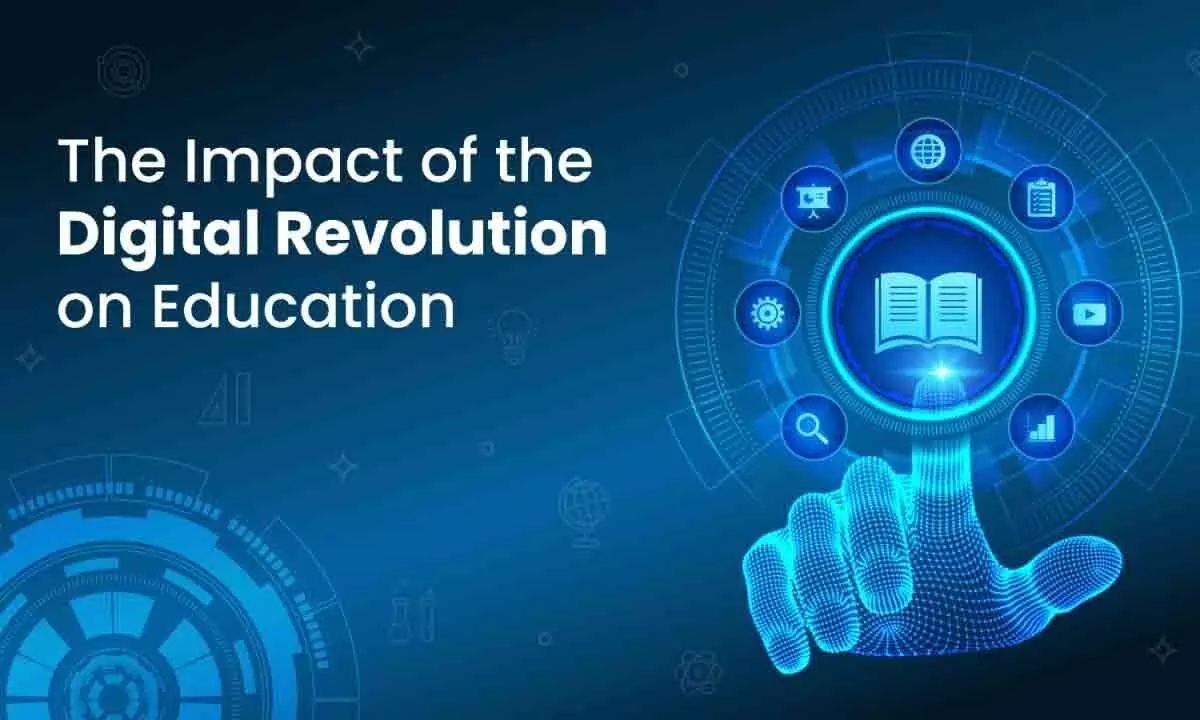Education's digital revolution: A year of technological progress

Classroom learning has changed hugely as a result of the digital revolution, and education is no exception.
Classroom learning has changed hugely as a result of the digital revolution, and education is no exception. The Latest technologies have made education more widely available and convenient than in the past. Students can access a wealth of information from anywhere in the world by using the internet.
They only need to do an online search to find out information on any issue they are interested in. Due to the fact that everyone with an internet connection may now access educational resources, this has increased options for schools. Students can access information from anywhere in the world by using the internet. New teaching methods have been introduced, thanks to digital technologies. Teachers encourage students' engagement through the use of virtual reality, gamification and simulation. To engage with students and establish cooperative learning settings, they can also make use of social media and other internet resources.
Revolutionising learning: The top educational trends of 2023
The landscape of education has undergone a significant transformation with integration of technology. It has reshaped the way students learn within the confines of educational institutions. One notable shift is implementation of personalized learning that garners attention from schools.
This approach tailors educational experiences to individual students by employing specialized teachers who cater to each student's learning needs. In the field of education, artificial intelligence (AI) becomes a powerful ally, acting as a kind of technological super hero. Educational institutions use its skills to give students accurate, timely support that helps them move through their learning journeys with ease. AI also gives teachers the ability to create lessons that are suited to each student, turning learning into an enjoyable puzzle-solving exercise.
In addition, virtual reality, or VR, has emerged as a valuable tool for modern schools. Subjects like science, math, and history are brought to life through virtual settings, providing an unmatched level of interactive learning that goes beyond textbooks. The widespread use of real-time communication systems like Zoom, Microsoft Teams, and Google Meet has completely changed the way that people learn together.
Peers and students can work together on projects without any geographical limitations, which improves the quality of education in general. These digital tools provide a global connection that goes beyond conventional classroom boundaries in addition to bridging physical barriers. Technology is a driving force for schools, ushering in a period of global connectedness, personalization, and interaction.
Adapting to change: How education evolved in 2023
Education in schools has changed a lot over the years to keep up with what students need and new technology introduced. In the past, schools used to be all about memorizing and listening to the teacher. But, things have changed now. Schools now care more about students thinking for themselves and working together. They want students to solve problems and be creative, not just memorize things.
The goal is to help students be ready for a world that is always changing. Technology is a big part of this change. Computers, the internet, and digital tools are now part of classrooms. This makes learning more interesting and interactive and students can learn from anywhere, not just in a classroom. Schools are also trying to understand that each student is different.
Everyone learns in their own way, so schools are giving students more freedom to learn at their own pace. This means having plans that fit each student and using technology to help them. Another big change is that schools now care about more than just academic stuff. Students are encouraged to do good at things like working in a team, solving problems, and using technology. These are skills that are really important in today's world where things change a lot.
Technology has also made it possible for students to learn online. They can study from any corner even if they're not in a classroom. It gives more people a chance to learn irrespective of their geographical boundaries. Lastly, schools are not just focusing on books and tests. They consider students' feelings, health, and how they get along with others. Schools are doing more to help students be healthy, both in their bodies and minds. Education has changed to fit the world we live in now.
(The author is MD, Birla Open Minds)














